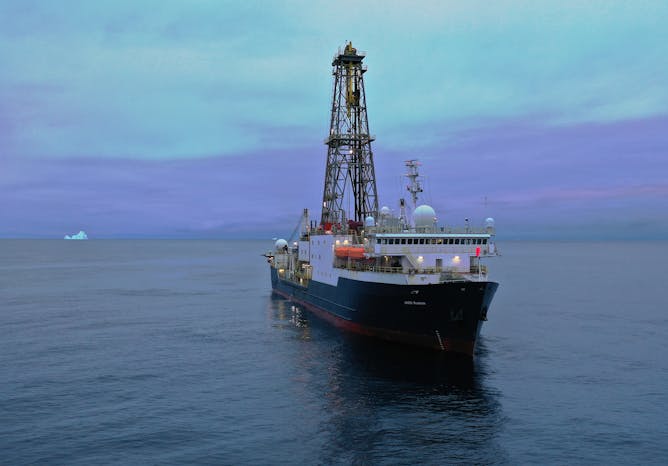Editor's note
|
|
One of my not-so-secret objectives is encouraging scientists to let the rest of us in on how they actually do their research and what they love about it. A great example is today’s story by Wesleyan University paleoceanographer Suzanne O’Connell who is spending two months on a research vessel in the iceberg-filled waters off Antarctica, studying past climate for clues about a warmer future. A landlubber like me isn’t going to be participating in an expedition like this any time soon. But thanks to the words and photos Suzanne has been zipping out to me via onboard satellite internet, I now know the muck they pull up from the bottom of the ocean can teach
scientists about how quickly glaciers melted millions of years ago – and also why they have explosives on board, and the amount of butter and eggs it takes to keep this floating fieldwork running.
Also today, articles on who gets to be a ‘female’ athlete, celebrating the Confederacy in Brazil and coming out at the Mormon BYU.
You may notice some changes in our newsletter today and on our home page. We’re experimenting and collecting data! Share your feedback.
|
Maggie Villiger
Senior Science + Technology Editor
|

|
|
Top story
|

The research vessel must dodge dangerous icebergs as it drills for sediment core samples.
Phil Christie/IODP
Suzanne O'Connell, Wesleyan University
A paleooceanographer describes her ninth sea expedition, this time retrieving cylindrical 'cores' of the sediment and rock that's as much as two miles down at the ocean floor.
|
Politics + Society
|
-
Dov Waxman, Northeastern University
About the only thing the Trump administration’s peace plan has going for it is the fact that no one expects it to work. And the plan's likely failure could trigger more Israeli-Palestinian violence.
-
Jordan Brasher, University of Tennessee
The Confederate flag debate has arrived to Brazil, pitting black activists against the Brazilian descendants of soldiers who fled the South after the Civil War.
|
|
|
|
|
|
|
|
|
|
|
|
Most read on site
|
-
Shervin Assari, University of Michigan
Sex is an important part of life, but many people avoid it. Fear, former abuse and religion are common reasons, but you may be surprised to know how your overall health also leads to avoidance.
-
Kirby Farah, University of Southern California – Dornsife College of Letters, Arts and Sciences
The holiday honors a 19th-century battle between the French and the Mexican armies that, strangely enough, may have influenced the outcome of the US Civil War.
-
Wayne Schlingman, The Ohio State University
The far side of the Moon sees its share of sunlight – it's dark only in the sense that it's mysterious because it's never visible from Earth. Here's why.
|
|
Today’s chart
|
-

 |
Dudley Poston
Texas A&M University
|
 |
Rogelio Sáenz
The University of Texas at San Antonio
|
| |
| |
| |
|
|